October saw an increase in activity for bids being submitted and a number of awards were won with congratulations due to Schools for winning research grants, consultancy contracts and organising Short Courses.
For ApSci, congratulations are due to Adrian Pinder for his consultancies with Natural England, Game & Wildlife Conservation Trust, and Aluna Foundation, to Paola Palma for her contract with English Heritage, and to Jonny Monteith for his consultancies with Churchfield Farm, Roofing Cladding & Building Ltd, Sembcorp Bournemouth Water Ltd, Anesco, and Sherborne Castle Estates. Good luck to Adrian Pinder, Roger Herbert and Adrian Newton for their consultancy to New Forest National Park Authority, and to Grants Academy member Amanda Korstjens for her application to AHRC investigating the feedback loops between our diets, societies and bodies.
For the Business School, good luck to Tim Ford, Mark Painter and Dean Patton for their consultancy to RBS Group, to Grants Academy member Max Lowenstein for his application to Socio-Legal Studies Association, to George Filis and Hossein Hassani who have submitted individual applications to the British Academy, to Aroean Lukman for his contract to the Japanese Society for Promotion of Science, to Juliet Memery and Dawn Birch for their application to British Academy of Management, and to Huiping Xian and Julie Robson who have submitted individual applications to the British Academy of Management.
For DEC, congratulations to Hongnian Yu and Shuang Cang (ST) for their Erasmus Mundus award with the European Commission, to Bob Eves and Siamak Noroozi for their Knowledge Transfer Partnership with Consolor, to Biao Zeng and Jian Jun Zhang (MS) for their contract with Hunan Tianpei IT Ltd for a match funded student, and to Zulfiqar Khan and Mark Hadfield for their contract with Future Energy Source. Good luck to Katherine Appleton for separate applications to the MRC and ESRC, to Sarah Williams for her application to NIHR, to Simon Thompson and Jian Jun Zhang (MS) for their application to the British Academy identifying yawning in neurological disorders by facial capture techniques, to Jan Weiner, Samuel Nyman and Anthea Innes (HSC) for their application to Alzheimer’s Research UK, to Jianbing Ma who has applied to the Royal Society, and to Tania Humphries-Smith, Nigel Garland, Mark Hadfield, Clive Hunt and Philip Sewell for their EPDE conference with the Institute of Engineering Designers.
For HSC, congratulations are due to Anthea Innes and Michele Board for their successful Erasmus LLP with the European Commission, to Anthea Innes, Michele Board, Sarah Hambidge, Samuel Nyman and Jan Weiner for their ESRC Festival of Social Science application ‘Dementia in Dorset – what does this mean for you?’, and to Lee-Ann Fenge, Maggie Hutchings, Jen Leamon and Anne Quinney for their ESRC Festival of Social Science application ‘Promoting dignity through understanding narratives of care’, and to Anthea Innes for her contract with Quantum LifeCare. Good luck to Sara Crabtree and Gail Thomas for their application to Wellcome Trust, to Jonathan Parker and Sara Crabtree for their application to the British Academy, to Luisa Cescutti-Butler for her short courses to Great Western Hospital NHS Trust and to Eastbourne District General Hospital, to Vanora Hundley, Edwin Van Teijlingen and Ann Luce for their application to the British Academy, and to Anthea Innes for her Wellcome Trust application.
Congratulations to the MS for Jian Jun Zhang, Jian Chang and Lihua You for their successful European Commission application for user centred computer animation techniques, they also, together with Xiaosong Yang, successfully secured a second European Commission application for ‘Dr Inventor’, to Stephanie Farmer for her consultancies with Borough of Poole and also Tribal Education Ltd, which the latter was joint with Anthony Minto, to Liam Toms for his consultancy with Doppelganger Productions, and to Rebecca Jenkins and Grants Academy member Mike Molesworth for their consultancy with Work Research Ltd. Good luck to Barry Richards and Roman Gerodimos for their application to AHRC, to Chris Pullen for his application to the British Academy, to Roman Geromidos for his submission to The Spencer Foundation, to Jian Chang, Hongchuan Yu and Jian Jun Zhang for their Royal Society of Medicine application researching smart mobile production of computer animation, to Jamie Matthews for his application to the Japan Foundation Endowment Committee, to Lihua You and Jian Jun Zhang for their Royal Society application, and to Julian McDougall and Ashley Woodfall for their application to NESTA.
For ST, congratulations to Lisa Stuchberry and Jon Hibbert for their contract with Dorset Clinical Commissioning Group (NHS), to Richard Gordon and Mike Evans (ApSci) for their consultancies with the British High Commission Nigeria and also with the British Embassy, and to Ehren Milner for his consultancy with Dorset County Council. Good luck to Grants Academy member Alessandro Inversini for his ESRC application on strategic and tactical use of tourism technologies in developing countries, to Andrew Adams for his British Academy application, to Grants Academy member Debbie Sadd for her Leverhulme Trust application, to Charles McIntyre for his consultancy to Winchester Council, and to Ehren Milner for his consultancy to Bath Museum Partnership.
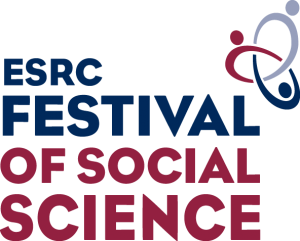 Building on their successful HEA funded seminar series event, The Power of Narrative and Stories in Enabling Learning for Professional Development in April 2013, the HSC Narrative Group was successful in attracting funding to deliver an event as part of the ESRC Festival of Social Science on Saturday 2nd November.
Building on their successful HEA funded seminar series event, The Power of Narrative and Stories in Enabling Learning for Professional Development in April 2013, the HSC Narrative Group was successful in attracting funding to deliver an event as part of the ESRC Festival of Social Science on Saturday 2nd November.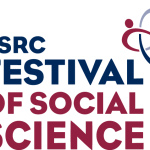
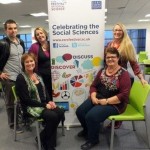

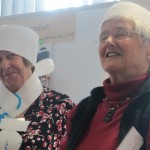




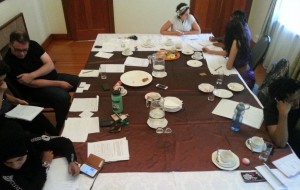







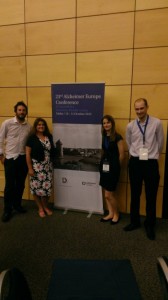
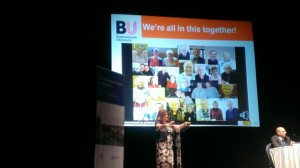


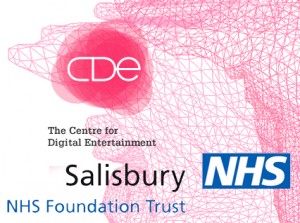
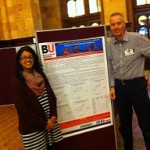













 REF Code of Practice consultation is open!
REF Code of Practice consultation is open! BU Leads AI-Driven Work Package in EU Horizon SUSHEAS Project
BU Leads AI-Driven Work Package in EU Horizon SUSHEAS Project Evidence Synthesis Centre open at Kathmandu University
Evidence Synthesis Centre open at Kathmandu University Expand Your Impact: Collaboration and Networking Workshops for Researchers
Expand Your Impact: Collaboration and Networking Workshops for Researchers ECR Funding Open Call: Research Culture & Community Grant – Apply now
ECR Funding Open Call: Research Culture & Community Grant – Apply now ECR Funding Open Call: Research Culture & Community Grant – Application Deadline Friday 12 December
ECR Funding Open Call: Research Culture & Community Grant – Application Deadline Friday 12 December MSCA Postdoctoral Fellowships 2025 Call
MSCA Postdoctoral Fellowships 2025 Call ERC Advanced Grant 2025 Webinar
ERC Advanced Grant 2025 Webinar Update on UKRO services
Update on UKRO services European research project exploring use of ‘virtual twins’ to better manage metabolic associated fatty liver disease
European research project exploring use of ‘virtual twins’ to better manage metabolic associated fatty liver disease